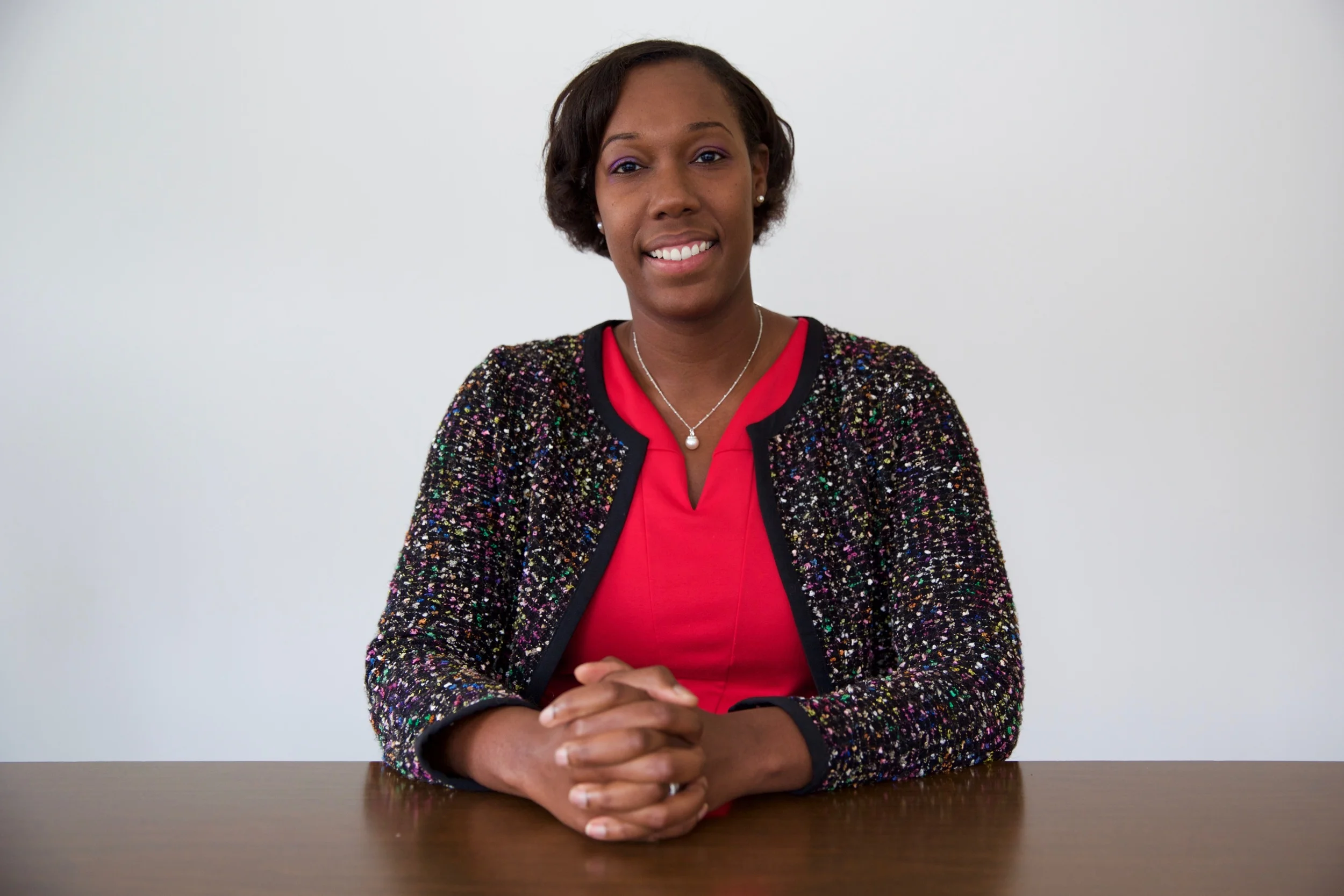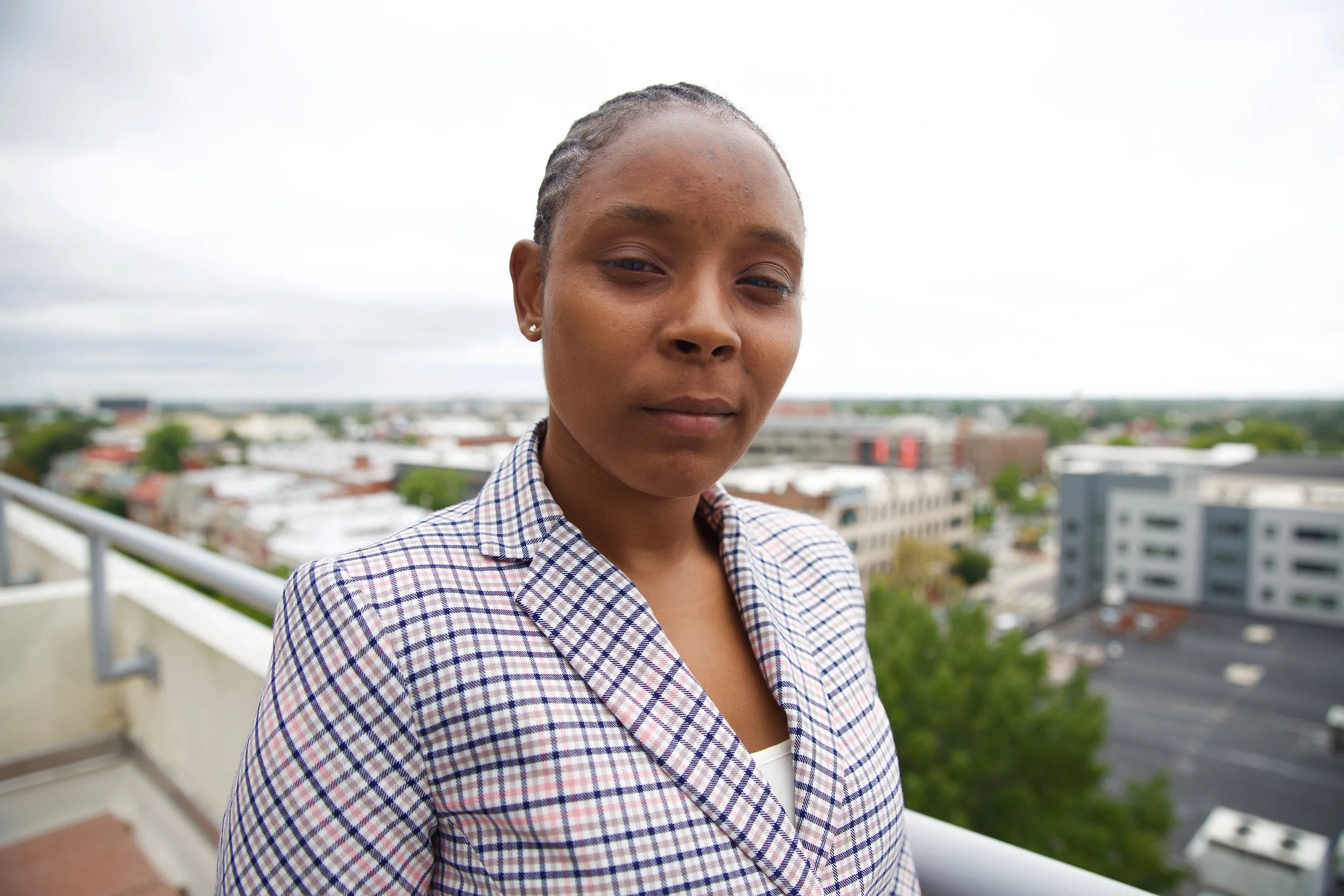Richmond Justice
STORIES + PORTRAITS
Lorraine | March 25, 2016
Lorraine Wright is the founding executive director of the nonprofit I Vote for Me. Through empowering marginalized individuals and communities to take action, Lorraine and I Vote for Me seek to dismantle social, economic, and political systems that maintain a permanent class of poor and powerless citizens.
I Vote for Me is focused on empowering, educating, and igniting our marginalized and underserved communities in the Richmond area to advocate for themselves. This work was born out of a great deal of searching for what I really wanted to do in my life—for how I could make the greatest positive impact on my community.
After college, I earned a graduate degree in project management, worked in corporate America for 11 years, and then served for eight years in the mental health field. I managed programs for several mental health agencies, and that’s where I first discovered the power of connecting with people—talking to them, listening to their stories, and then figuring out not only how to advocate for them, but also how to empower them to advocate for themselves. That felt good. And I said, “you know what? I’m going to take it a step further.”
We tackle a broad range of issues through I Vote for Me. But education and incarceration are two of the most significant and most intertwined challenges we face. I’m troubled by what’s called the “school-to-prison pipeline,” the process by which children accused of misbehaving at school are referred to police departments for citation and punishment. Young boys of color are disproportionately referred to law enforcement for school-based infractions, and that’s a major problem nationally and right here in the Richmond area. In fact, a study from the Center for Public Integrity found that Virginia leads the nation in school-based referrals to law enforcement, and the vast majority of these referrals involve children of color.
To break up the pipeline, first, we need to have an honest conversation, and that has to start with leadership. I attend school board meetings in Henrico County, Chesterfield County, and the City of Richmond—and across the region, I see many school board members who are not only apathetic about the school-to-prison pipeline, but even complicit. Likewise, the Virginia Department of Education has been passive in its approach. I was told during one meeting at the Department of Education that while, yes, the Commonwealth leads the nation in school-based referrals, those referrals do not always result in arrests. That isn’t a silver lining! Even when referrals do not lead to arrests, referrals build a student's disciplinary profile. That permanent record can make it much likelier that a child or young adult charged with a misdemeanor will find herself or himself sent to jail if they have a history including school-based referrals. And since we know that students of color are disproportionately referred, this leads directly to another major problem that we’ve begun to discuss nationwide—the over-incarceration, the mass incarceration, of black men. School-based referrals make it much easier for law enforcement to push kids through the pipeline and into prison.
Though the school boards have done little to stop this, I really commend Chief Douglas Middleton of Henrico County. He decided to get rid of zero-tolerance policing in schools and limit arrests in schools to those directly involving student safety. “We’re going to hit the reset button,” he said, and no longer refer students to police for matters involving the school's code of conduct. Until recently, the status quo established an expectation that students are going to engage in criminal activity. How about we set the expectation that they’re going succeed, that they’re going to do well, that they can respectfully handle conflict? When you set those expectations and put positive interventions in place, then you will see positive results.
“Change starts with being truthful—with ourselves, with others—about the actual state of things.”
There’s a great disparity in outcomes from eastern to western Henrico County. This is too-little discussed, again, because the school board has stifled debate even when parents step forward to advocate for their children. The problem is rooted in implicit bias, and that’s a difficult force to fight against mainly because people do not understand it.
We all have these ingrained thoughts—stereotypes—and when you see certain behaviors in action, they tend to confirm your biases. You have primarily white women teachers in schools with student populations that are largely African American. When a teacher sees a white boy misbehaving, she might see him as cheeky—maybe even cute. But when she sees a black boy misbehaving, she might think, “I have to keep an eye on him.” His misbehavior triggers stereotypes of black men and boys as threats. Maybe the teacher can relate to the white boy as being her son, but media images of black boys create a pathology around misbehavior. That’s one of many crucial inputs—including segregated housing, inherited inequities in wealth, and overt racism—to the school-to-prison pipeline.
There’s a lot of denial of racism expressed along the lines of satisfaction with how far the country has come with regard to race. We have come a long way, but slavery exists today in a different form. As Michelle Alexander has written, there’s a “New Jim Crow.” We have a modern-day plantation system in the mass incarceration of black men. It’s racism, made modern. We can change it. But change starts with being truthful—with ourselves, with others—about the actual state of things.
—interviewed February 12, 2016








